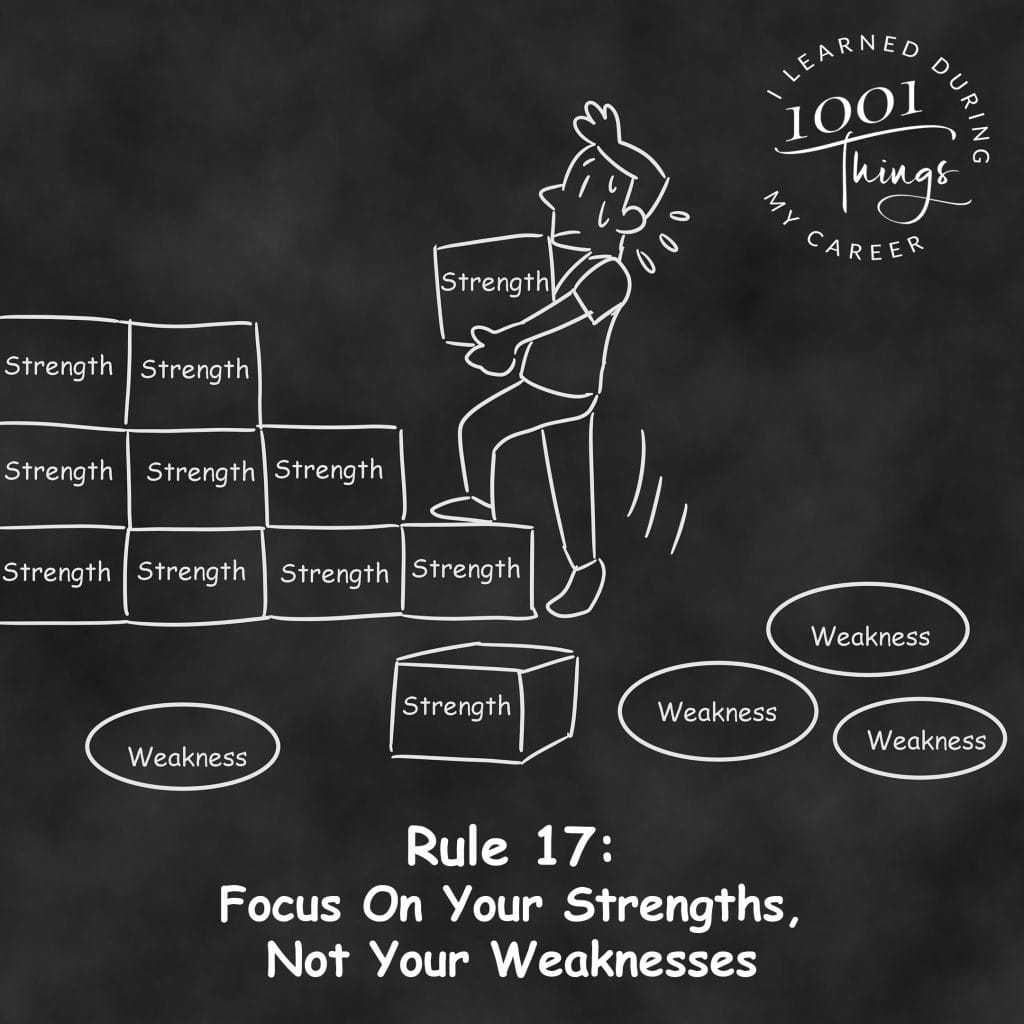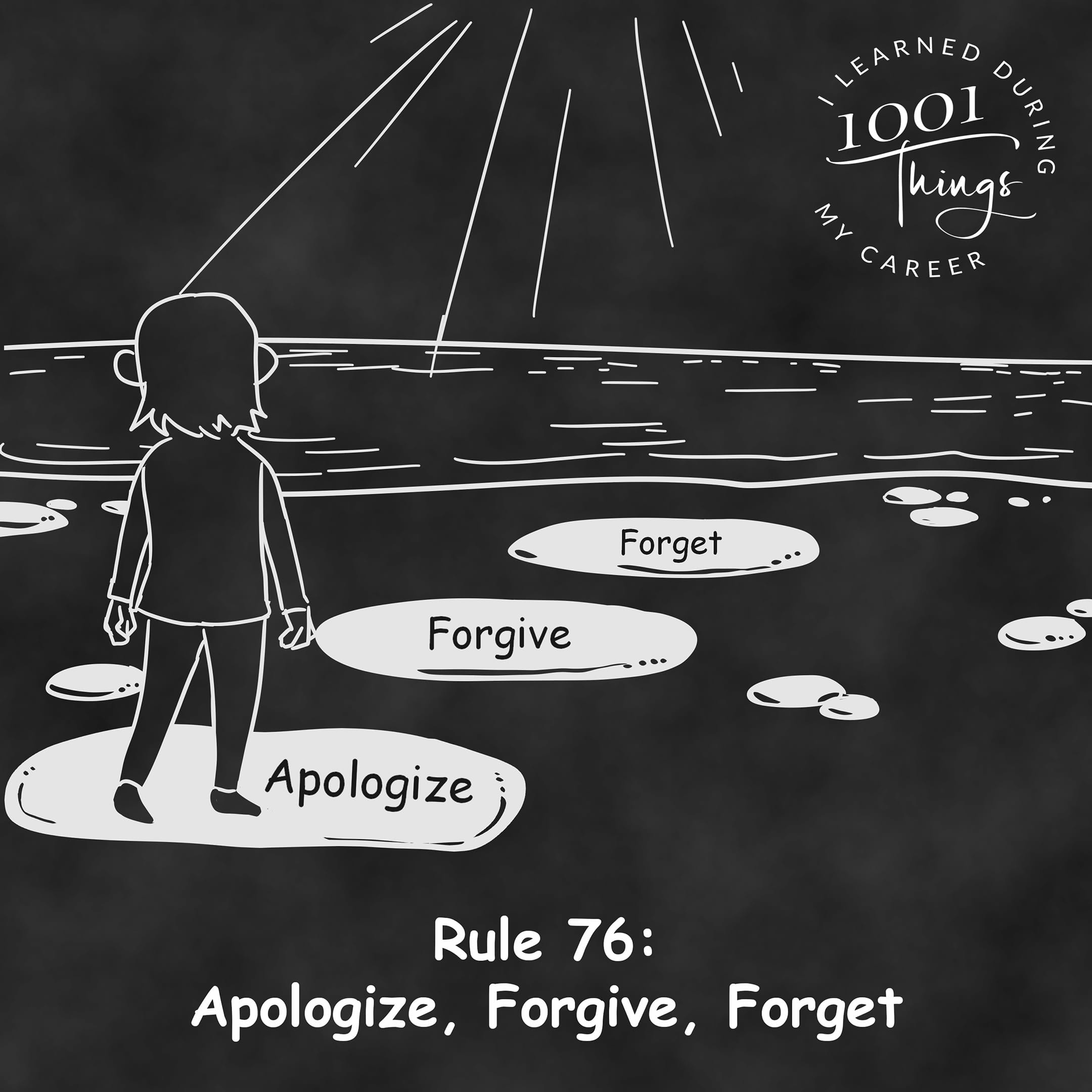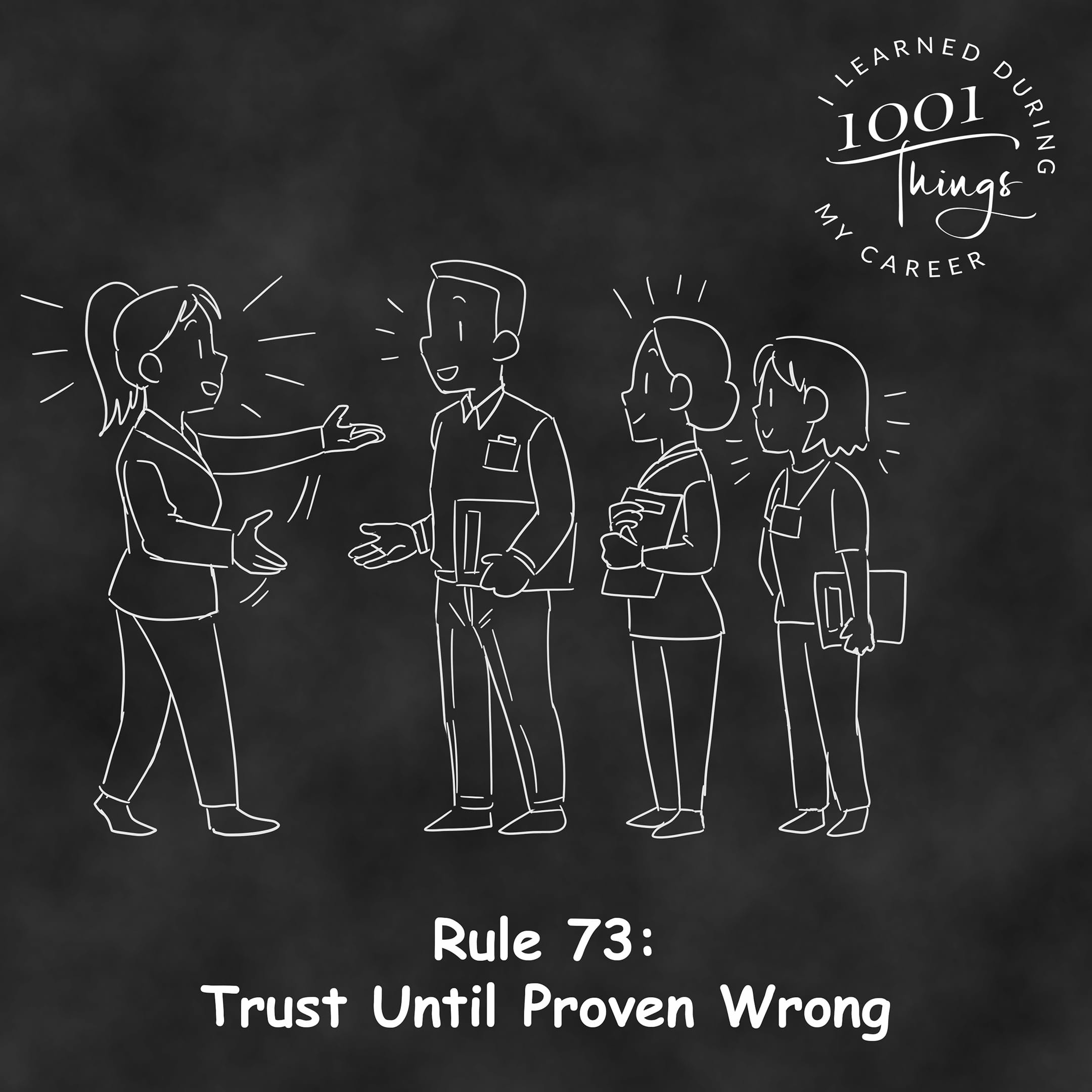How often do you find yourself working on development plans that address areas of improvement identified by your line manager? And how often do you struggle to define measurable improvements a year later? I, for my part, struggled all the time!
The problem with many of these plans is that they usually focus on weaknesses rather than strengths: for instance, attempting to develop strategic thinking may require considerable efforts and not yield tangible results if it’s not your natural strength; plus, it uses some of your energy that you could otherwise invest in something else. Focusing on areas where you already excel, execution maybe in the above example, usually leads to more impactful outcomes.
Concentrating on your strengths not only allows you to become better at what you are already good at and have an even bigger impact on your team and your organization, it also leads to greater satisfaction! The trick here is to align your skill set with roles that capitalize on your abilities: if you suck at strategy, then choose a role where you can execute more than you have to plan! And if your role includes capabilities that you are not naturally good at, surround yourself with teammates who possess complementary talents. By leveraging natural strengths and fostering growth in these areas, each individual can optimize his or her performance, contribute more effectively to joint objectives, and make the entire team stronger.
Interestingly, studies have shown that focusing on developing strengths leads to faster growth and greater satisfaction compared to efforts to improve weaknesses. Embracing strengths not only enhances performance but also promotes happiness, reduces stress, and boosts confidence. This, in turn, reinforces your motivation to become even better. It’s an endless positive feedback loop! So why not give it a try and see the positive impact it can have on your personal and professional development?





